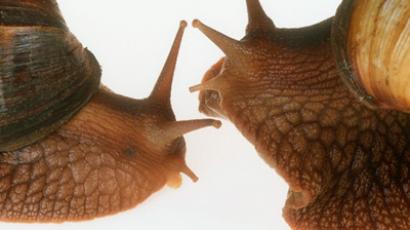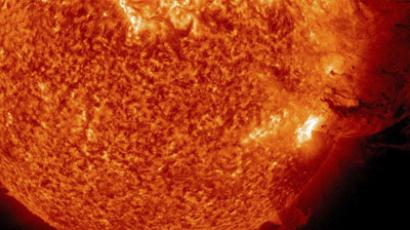Green clouds over Moscow spark disaster fears (VIDEO)
Mysterious green clouds have been spotted over the Russian capital, sparking fears of a chemical disaster and even some doomsday theories.
But the Emergencies Ministry is advising the public to calm down. It says the clouds are actually composed of birch pollen, not of chemicals from an allegedly burning factory in the Moscow region, as some reported. Some people, however, got so scared that even the official comments could not convince them. Russian Twitter users have been posting alarming messages like “Moscow schools are closed because of the blast! Children are sent home,” “Sky has turned completely green in Moscow’s south!” and “The factory in Kaluga is destroyed!” A flood of 911 calls was also registered. Others believe that the authorities are hiding information from the public: “Pollen is just an excuse. It might as well be the beginning of the Apocalypse!” one popular Russian blogger posted to his readers. The odd natural phenomenon mystically coincided with the 26th anniversary of the Chernobyl disaster, which caused further speculation about the authorities withholding information.Biologists say birch trees started blooming yesterday, which would also explain why Muscovites have started sneezing. Birch pollen is a strong allergen, so people suffering from hay fever are strongly advised to take the necessary steps.“This pollen can stay in the air for quite a long time – around four weeks,” biologist Vladimir Murashov told Ria-Novosti. “The wind can carry it ten kilometers from the tree.”














